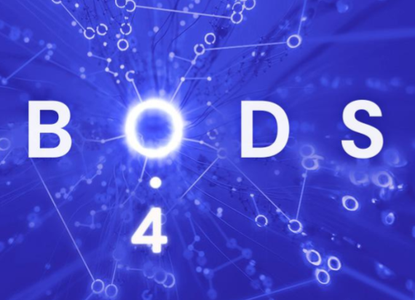Using beneficial ownership data analysis tools to understand, investigate and visualise ownership structures
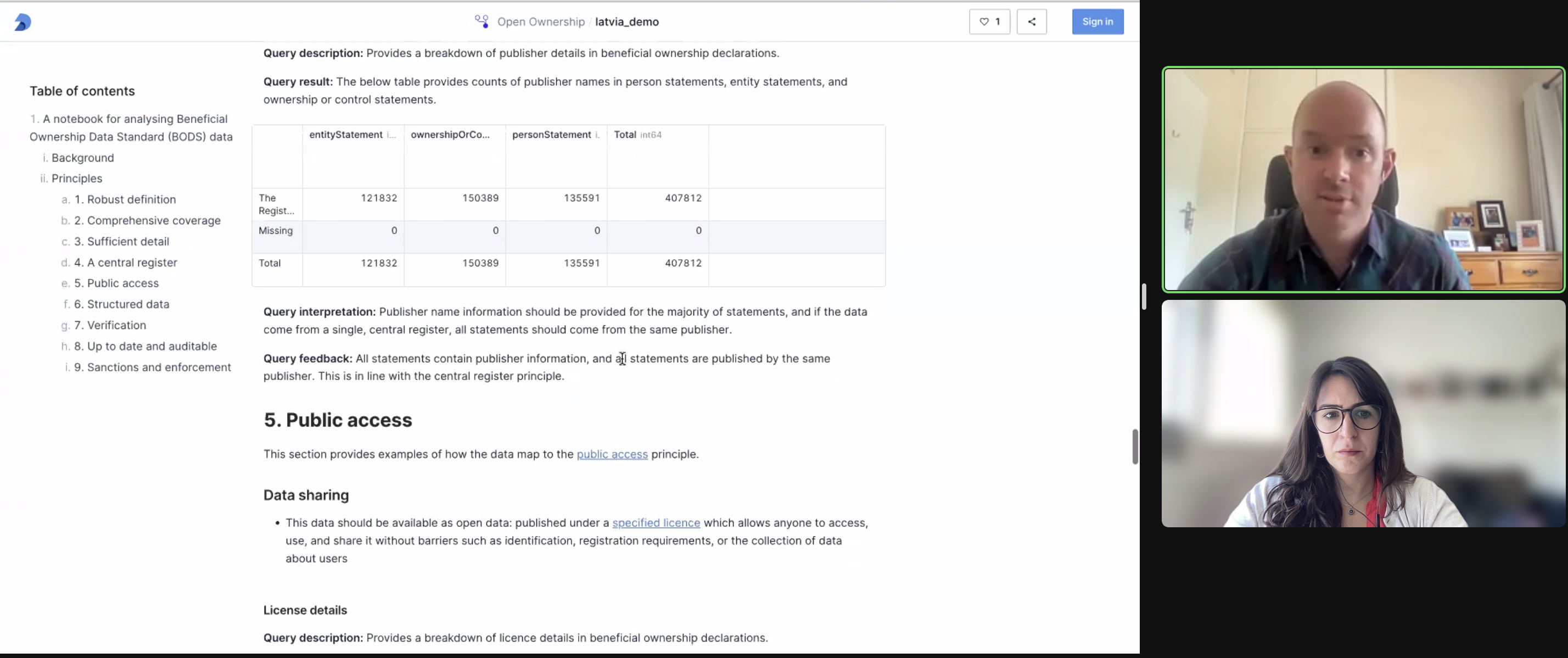
In October and November, Open Ownership organised the first-of-its-kind workshop series to share the importance of structured beneficial ownership data for comparison and analysis.
We explored the Beneficial Ownership Data Standard (BODS) and showcased how our beneficial ownership data analysis tools can be used for investigations.
With almost 150 people registered, the series was structured into three workshops:
- Workshop #1: The importance of structured data and what BODS is
- Workshop #2: The Open Ownership Register and the BODS data analysis notebook
- Workshop #3: Use cases and examples for storytelling
Below, we share some insights and learnings from these workshops.
Working with high-quality structured data
In our first workshop, we discussed the global momentum for beneficial ownership transparency. Despite over 110 countries having committed to it, less than half of them have beneficial ownership registers. Of those, just a few publish free and well-structured data for download and analysis.
When we talk about structured beneficial ownership data, we mean that there is a system where data is submitted, stored, and published in a way that is highly organised according to a predefined model. Ideally, this should be captured in a relational database to support detailed examination or analysis of the data.
Bearing this in mind, we presented how data users can create their own structured beneficial ownership data: by using the BODS data generator, a tool built by Open Ownership and Open Data Services. This tool, which works through Google spreadsheets, helps to create well-structured beneficial ownership data by following BODS guidance, meaning that it is organised using its three components: people’s data, companies’ data, and ownership or control data (the relationship between companies and people, i.e. beneficial owners).
The tool not only helps to create well-structured beneficial ownership data, but it also allows users to visualise the ownership structures by downloading the data in JSON format and using the BODS data visualiser.
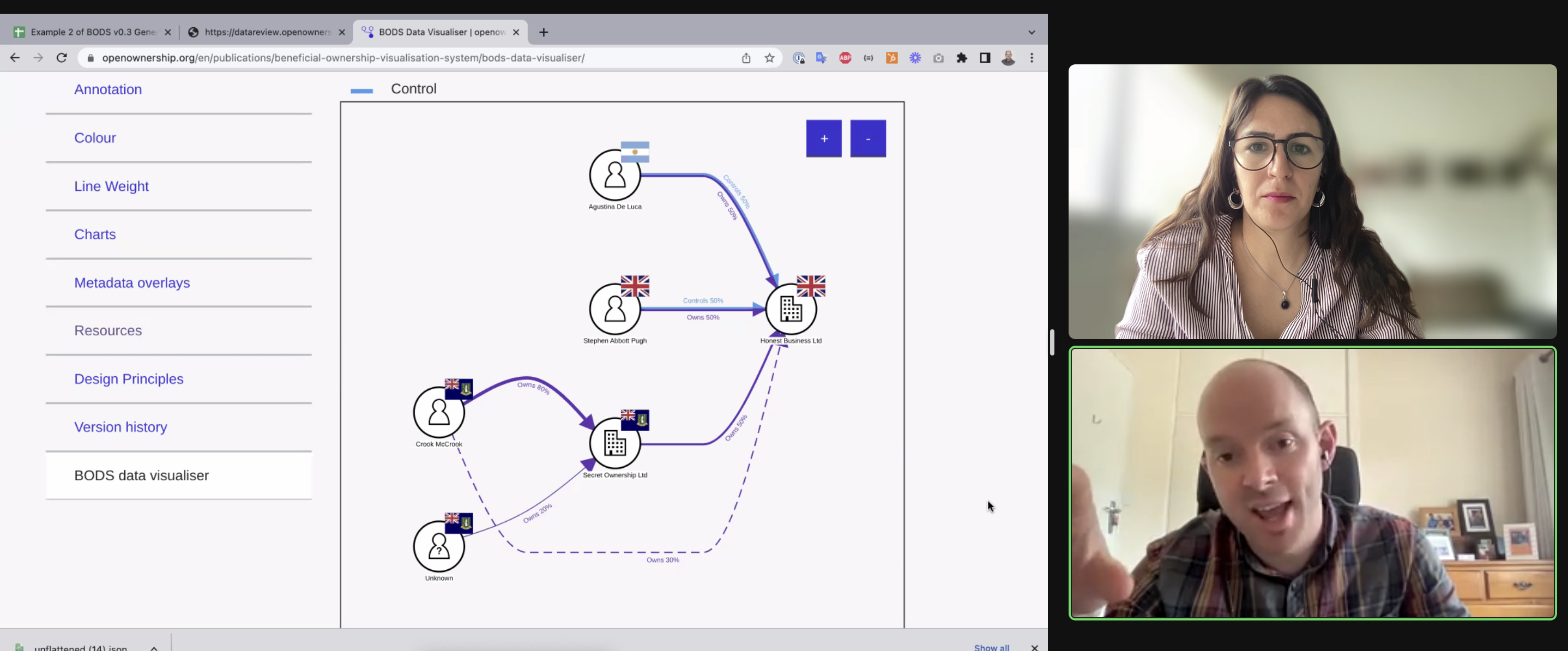
For those who want to learn more about this tool and create their own BODS data, please watch the recording of the workshop.
The transnational challenge, and how global linkable data can help
In our second workshop, we introduced the Open Ownership Register and tools to analyse bulk beneficial ownership data, such as Datasette and the BODS data analysis notebook.
The workshop introduced the importance of public registers, unique identifiers, and why we need global linkable data. With over 22 million beneficial ownership records from 8.5 million companies, and featuring 9 million beneficial owners, the Open Ownership Register allows users to search by beneficial owner name, company name, or company number; visualise connected data; and download it for reuse. The Open Ownership Register currently contains data from Denmark, Slovakia, and the United Kingdom (UK), reconciled with data from OpenCorporates, and it will soon incorporate data from Armenia, Nigeria, and other countries.
The trainers explained how to look for information; how to understand how people and companies are connected; and how to see those connections using graphics.
Additionally, we introduced two data analysis tools that help to investigate bulk data, and respond to questions, such as: “How many beneficial owners are registered on ‘Billionaire’s Row’ in the UK?”; or “Who is the youngest beneficial owner listed in Latvia?”. Participants learned how to conduct these analyses, and how this information might be relevant in their countries.
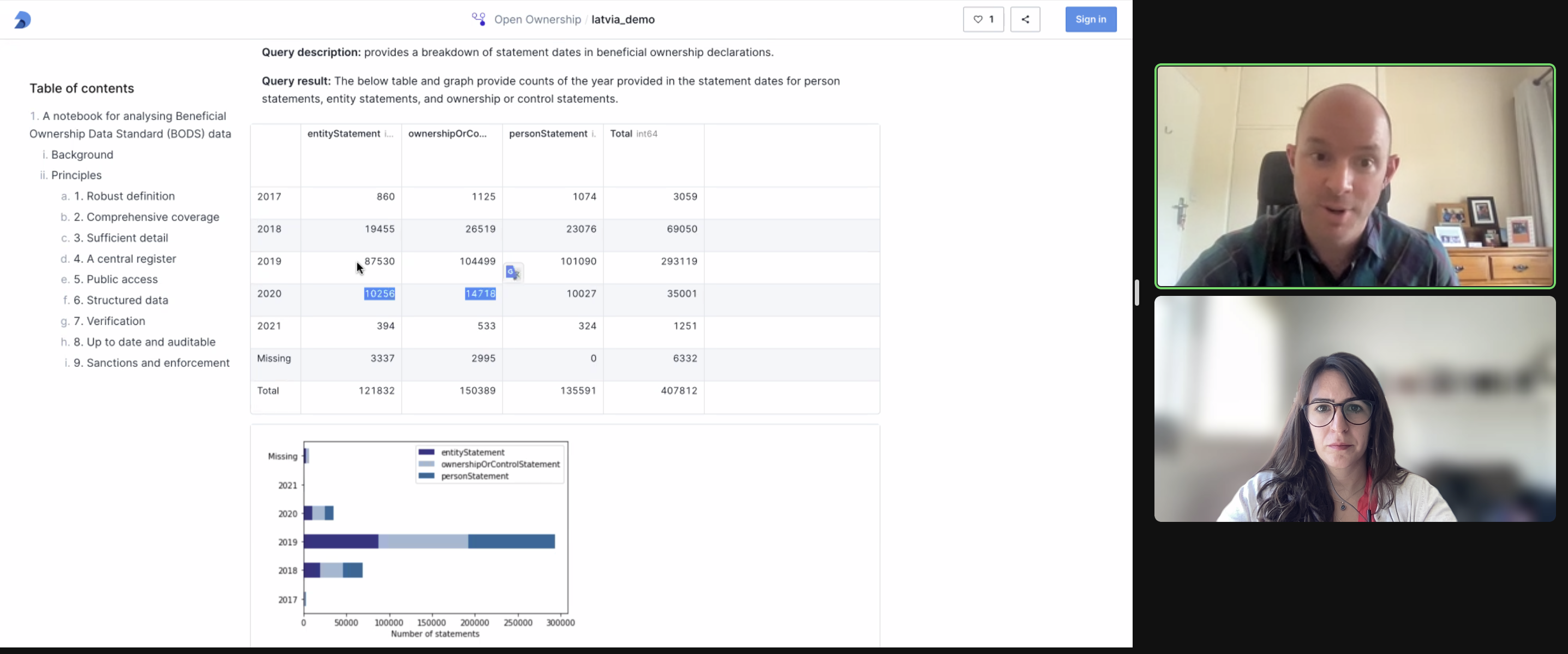
A full recording of the workshop is available. This will be a useful resource for those interested in learning more about the Open Ownership Register and the BODS data analysis notebook, and it includes relevant exercises.
Visualising and telling stories
The last workshop was focused on sharing examples and use cases in using and visualising beneficial ownership data as a way to inspire participants to understand what their interests might be and how data could be communicated.
Divided in policy areas such as procurement, national security, anti-corruption, or sanctions, we introduced stories such as Torre de Control from PODER, a Mexican civil society organisation; Datlab’s investigation, which shows how Russian-owned companies receive European Union’s funds; Politikus, a Malaysian initiative showing connections between beneficial owners and politically exposed persons (PEPs); ClimateTRACE, a recent initiative combining worldwide emissions data with ownership and control details about factories, mines, and other locations; and how the Iranian Oil Company, registered in the UK, was forced to transfer its interests to a trust, following United States’ sanctions of the Iranian government in 2018.
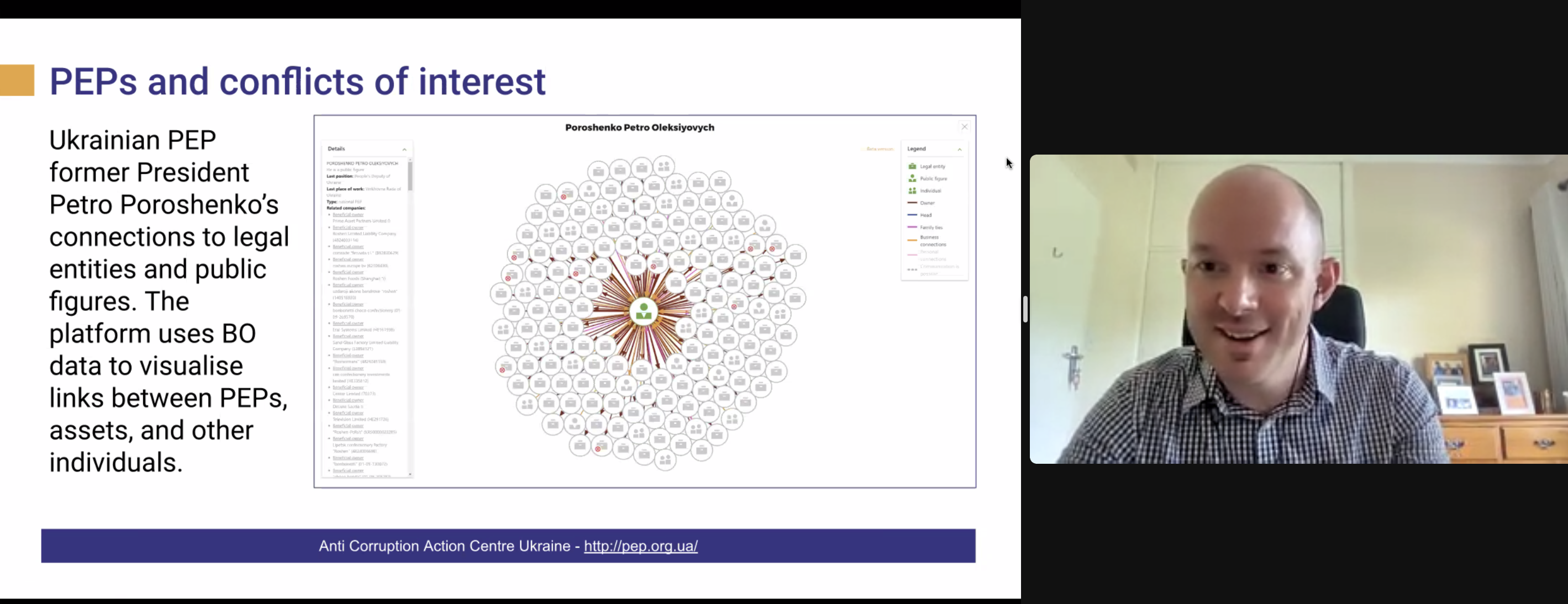
Following the stories, the trainers pointed to key data sources that help to combine local beneficial ownership data, such as national Financial Intelligence Unit reports; the Global Terrorism Database; the Natural Resource Governance Institute’s contracts database; the Organised Crime and Corruption Reporting Project’s database, Aleph; Peppercat, a database of PEPs from all over the world; and the Extractive Industries Transparency Initiative national reports for extractive licences, revenue payments, and contracts.
The recording of this workshop is available for anyone interested in reviewing and learning from these use cases and their findings.
All three workshops were followed with specific tasks to explore the content delivered as well as simple and complex exercises which participants could submit for review by the trainers.
Next steps
Building on this experience, we expect to develop a practical user guide that will explain what each tool was developed for and outline clear steps for how to use them. The user guide will be accompanied by tutorials and videos, tested through these workshops. We expect to launch this guide in early 2023.
We hope that the workshop participants will be able to use the tools in their daily work, not only for investigations and data analysis, but also for advocating in their home countries for the importance of structured, open, and free beneficial ownership data.
We want to thank all those who attended the workshop series and shared insights, questions, feedback, and inspiring discussions with us.
We are available for any questions or guidance on how these tools can be used. Please get in touch with us on [email protected].
If you would like to receive communications on our work, future workshops, or new releases, please subscribe to our newsletter, Disclosure, here.
